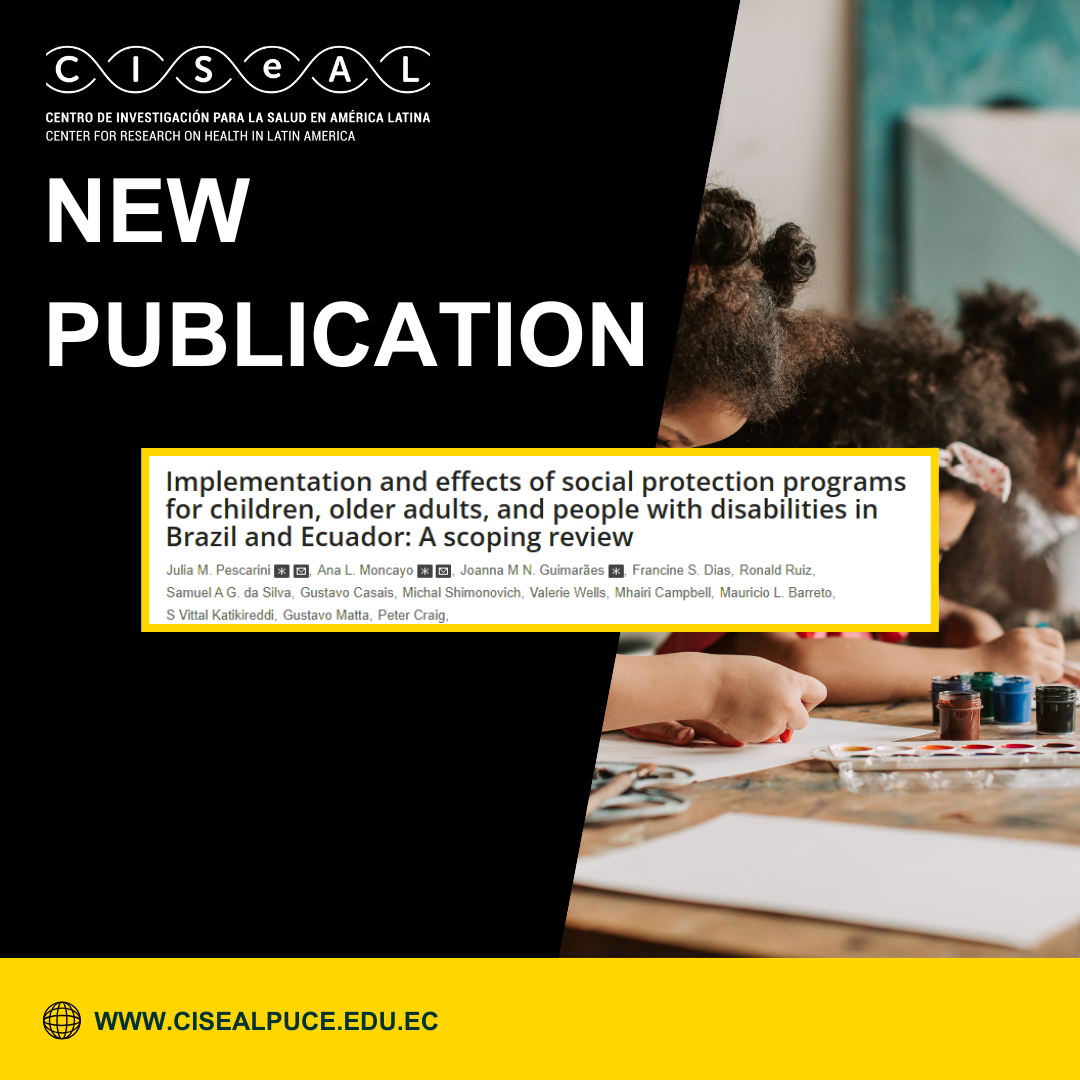 Our Principal Investigator, Dr. Ana Lucía Moncayo, together with Dr. Julia M. Pescarini from the Center for Data and Knowledge Integration for Health (Cidacs) – Brazil, took part in a collaborative study in which they share both first and corresponding authorship. The article, published in PLOS Global Public Health, is titled “Implementation and effects of social protection programs for children, older adults, and people with disabilities in Brazil and Ecuador: A scoping review.”
Our Principal Investigator, Dr. Ana Lucía Moncayo, together with Dr. Julia M. Pescarini from the Center for Data and Knowledge Integration for Health (Cidacs) – Brazil, took part in a collaborative study in which they share both first and corresponding authorship. The article, published in PLOS Global Public Health, is titled “Implementation and effects of social protection programs for children, older adults, and people with disabilities in Brazil and Ecuador: A scoping review.”
This work is part of the SEDHI project (Social and Environmental Determinants of Health Inequalities) and examines how social protection programs targeting children, older adults, and people with disabilities living in poverty have been implemented and what their effects have been in Brazil and Ecuador. The review explores the link between poverty and health in Latin America, where long-standing inequality has driven the creation of policies such as Bolsa Família in Brazil and the Bono de Desarrollo Humano in Ecuador. These programs have helped reduce poverty and improve indicators of education, economic inclusion, and health, although coverage and sustainability gaps persist.
With a protocol registered in the Open Science Framework, the study reviewed 114 publications between 1990 and 2024 from academic databases and institutional literature. It included the Bolsa Família and Benefício de Prestação Continuada programs in Brazil, and the Bono de Desarrollo Humano, Bono 1000 Días, Pensión Mis Mejores Años, Pensión Toda una Vida, and Bono Joaquín Gallegos Lara programs in Ecuador. The study assessed their implementation processes, challenges, quality, coverage, and both the intended and unintended effects on social and health determinants.
The findings show a greater number of studies conducted in Brazil, particularly on Bolsa Família, while evidence from Ecuador remains more limited. The article highlights the importance of strengthening the evaluation of social policies in the country and moving toward more comprehensive social protection models that reduce inequalities and improve the health of the most vulnerable populations.
Would you like to learn more?
Read the full article at: https://journals.plos.org/globalpublichealth/article?id=10.1371/journal.pgph.0005281



